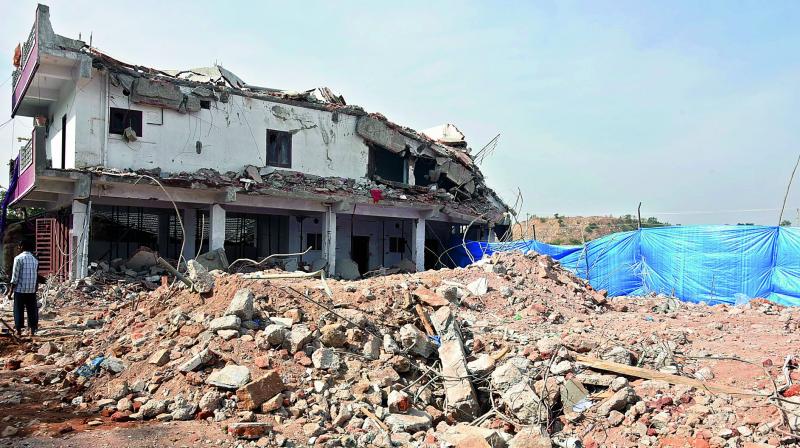GHMC corporators play key role, set two rates for buildings
The amount of bribe is much higher if the construction is illegal or an encroachment.

Hyderabad: If a building is coming up in a locality, the local corporator will send his henchmen to the builder to demand that he be paid a ‘commission’ even if the construction has been approved by the local body.
The amount much higher if the construction is illegal or an encroachment. Say, the builder’s application is rejected by the concerned GHMC official. The builder will then approach the corporator for help. The local representative will then get the file approved by the GHMC, for which he will earn a higher commission.
In the event the builder refuses to pay off the corporator, the latter can make things very sticky. In a case reported in this newspaper, a builder constructing a commercial building in Serilingampally, which was approved by the GHMC, refused to bribe the corporator. The corporator complained that the builder had encroached on a nala. The GHMC issued notices, and the matter was resolved only after the builder paid up.
A former standing council member expla-ined how illegal buildings proliferate: “The town planning section officer and inspectors have to inspect every construction site and identify illegal structures. Once an illegal building is identified, the GHMC must issue notices. If the builder ignores three notices, the building should be pulled down. But, this is seldom done. The builder goes to court.”
Corporators appoint agents who identify upcoming structures. They fix two different rates of bribes — one for buildings with permission and one for those without. Corporators pr-event town planning off-icials from demolishing the illegal structures.
Thus, corporators, irrespective of the party they belong to, are part of the illegal structures racket. And since the salary of a corporator is '6000, the extra cash comes in very handy since it is not, of course, declared, the former standing council member said.

